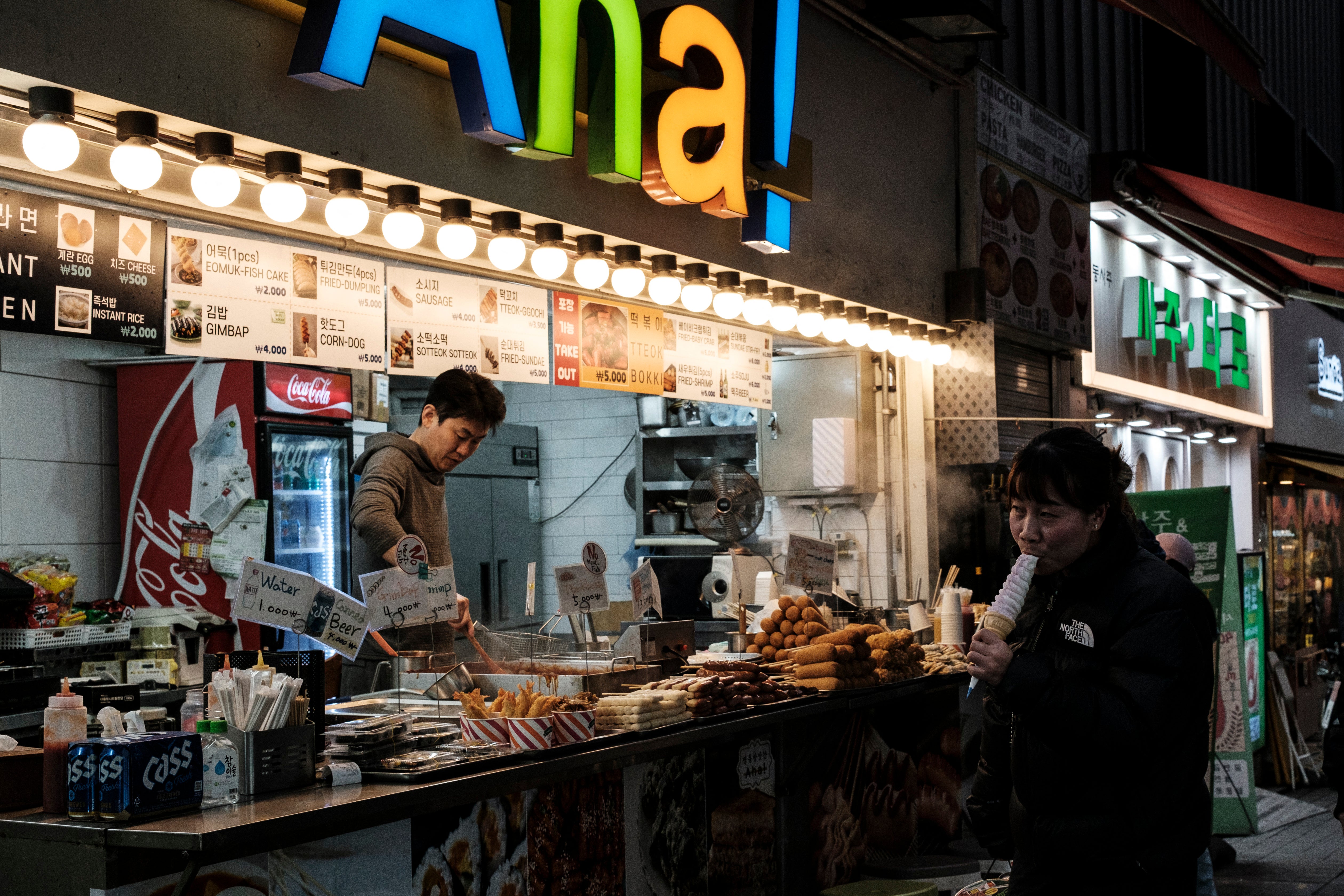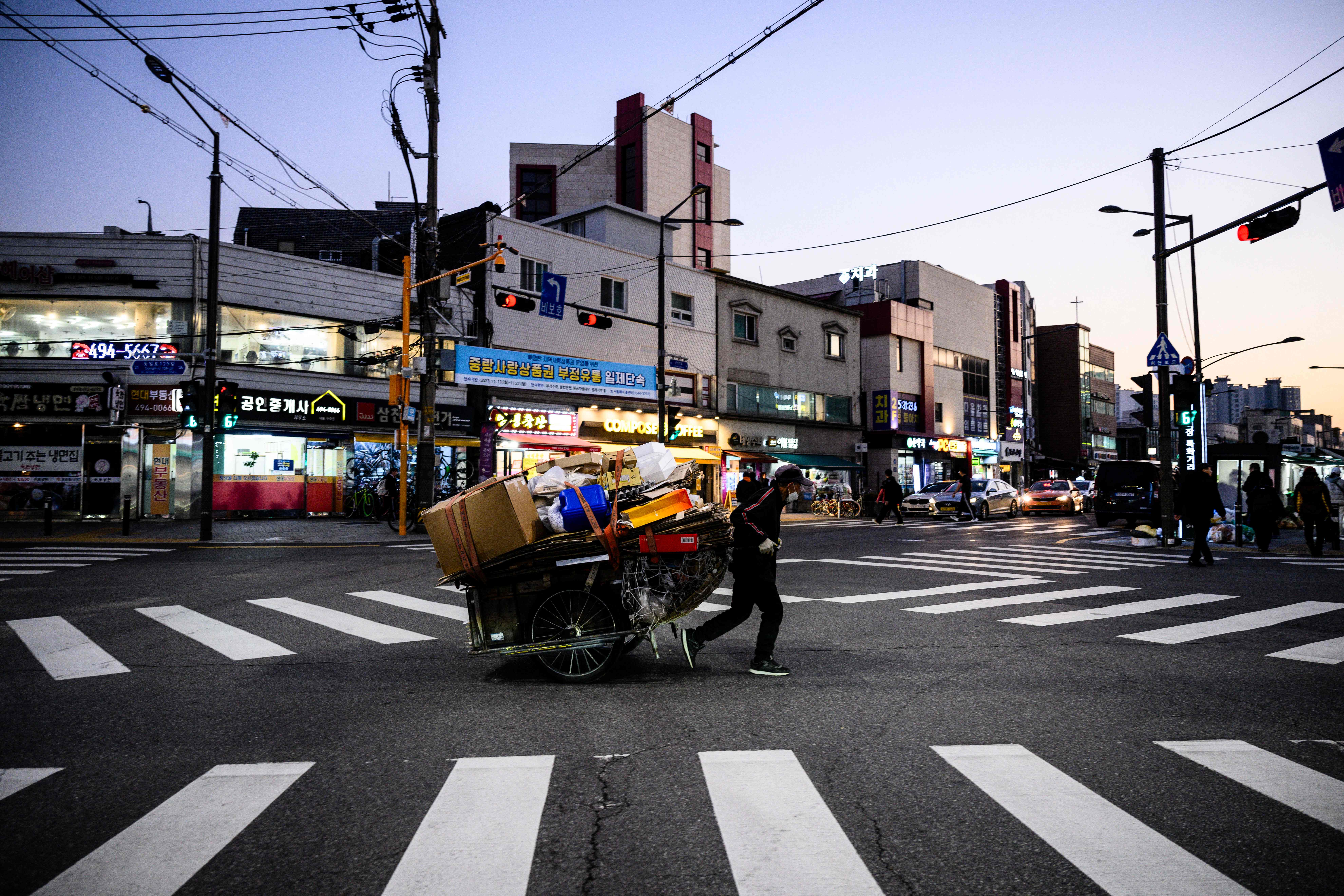Major Asian capital launches £250m initiative to prevent lonely deaths
The ‘Loneliness-Free Seoul’ plan is aimed at dealing with increasing cases of godoksa (lonely deaths) in the South Korean capital
Your support helps us to tell the story
From reproductive rights to climate change to Big Tech, The Independent is on the ground when the story is developing. Whether it's investigating the financials of Elon Musk's pro-Trump PAC or producing our latest documentary, 'The A Word', which shines a light on the American women fighting for reproductive rights, we know how important it is to parse out the facts from the messaging.
At such a critical moment in US history, we need reporters on the ground. Your donation allows us to keep sending journalists to speak to both sides of the story.
The Independent is trusted by Americans across the entire political spectrum. And unlike many other quality news outlets, we choose not to lock Americans out of our reporting and analysis with paywalls. We believe quality journalism should be available to everyone, paid for by those who can afford it.
Your support makes all the difference.Seoul is allocating over £250m to tackle the rapidly rising issue of loneliness in the city, amid the growing number of single-person households and senior citizens living by themselves.
The detailed plan, named “Loneliness-Free Seoul”, is aimed at dealing with the problem at its root and preventing the increasing cases of godoksa (lonely deaths) in the South Korean capital.
According to data released by the Ministry of Health and Welfare, there were 3,559 in 2022 and 3,661 lonely deaths in 2023 across the country.
“It seems that lonely deaths among people in their 20s and 30s were attributable to failure in finding jobs or being laid off,” said Noh Jung-hoon, a welfare official from the health ministry.
Over the next five years, the city will invest ₩451.3 bn won (£250.2m) to ensure none of its residents – both Koreans and foreign nationals living in Seoul – feel alone, according to The Korea Herald. The initiative will hinge around the “Smart 24 Platform”, which will include both online and offline ways so all residents can seek help and counselling.
“Social issues like low happiness levels, high suicide rates and depression are all related to loneliness,” Seoul mayor Oh Se-hoon said during a press briefing on Monday.
“Loneliness and isolation are not just personal challenges but societal issues we all need to address. We are committed to leveraging all of our administrative resources to create a ‘loneliness-free Seoul,’ ensuring meticulous management from prevention to returning to society and preventing further isolation.”
One of the strategies is the “Goodbye Loneliness 120” helpline, a dedicated 24-hour hotline starting in April 2025, where callers will be connected to trained counsellors. Follow-up support like on-site visits and emergency interventions will also be built into it, as well as be available for friends, family, or concerned neighbours who wish to offer support.
Also included in the plan are the creation of community spaces named Seoul Heart Convenience Stores, to offer lonely people a spot to enjoy simple meals, like instant ramyeon, Korean version of instant ramen. Four such locations are planned for now, to open in 2025 and will offer residents a checklist to assess their social isolation levels and speak to available counsellors.
The government also plans to expand its services aimed at promoting mental health to all residents, as opposed to the existing plans which are only focused at high-risk groups. A city official said whether these services will also be offered in English will be determined once the final plan is released.

Seoul will also launch the 365 Seoul Challenge, which will link major events in the city to a points system that wins participants rewards like tickets to the Seoul Skyway, the Han river camping site, or the Seoul Botanic Park.
In addition, the city will also work with food delivery platforms to identify and assess isolated customers, since single-person households are more likely to stay in and order via delivery services.
According to data, the number of single-person households in South Korea has gone from 7.16 million in 2021 to 7.5 million in 2022 and 7.82 million in 2023.
For older residents, the city will start community-based networking options like cooking classes, exercise classes, or meal box provisions to help them with social isolation.
For elderly residents in South Korea, welfare support is not sufficient, leading many to live in poverty and unable to seek treatment for medical ailments due to the cost. Those within the age group between 50-60 accounted for 54.1 per cent of total lonely deaths in 2022 and 53.8 per cent in 2023.
The government think tank Korea Institute for Health and Social Affairs (KIHASA) conducted a study in 2019 and found that three per cent of those aged between 19 and 34 suffered from isolation and reclusion, a more extreme form where people keep themselves completely secluded from society for years. This is around 338,000 people across the country, with around 40 per cent beginning their isolation in adolescence, according to the ministry. This number went up to five per cent in 2021.
Experts believe that South Korea’s extreme isolation in younger generations stems from cultural factors particular to East and Southeast Asia, which promotes a more family and community-centred approach to life where economic prosperity and a family determines their worth in society.
“Parents give everything to their children to ensure them opportunities, and they also expect a lot from their children,” Lee Eunae, the chief director of civic organisation Seed:s told NPR.
“They believe their children must inherit the wealth and social status that they have achieved.”
“The older generation demands the standards, concept, and method of success that they experienced, but working hard alone no longer guarantees comfort in South Korea.”

However, rising cost of living, declining quality of life, focus on traditional gender roles, lack of availability of both stable jobs and a balanced work-life structure have led to younger generations feeling distinctly unfulfilled in their lives.
"The sense of frustration, hurt and shame from feeling useless in this society supersedes their desire for relationships,” said psychology professor Kim Hyewon of Hoseo University.
In 2023, the Ministry of Gender Equality and Family announced that it would provide up to ₩650,000 won (£363.3) per month to isolated youths, in an effort to support their “psychological and emotional stability and healthy growth.”
The measures are also aimed at trying to fix the country’s demographic crisis, which has left South Korea with a rapidly ageing population and a projected birth rate of 0.68 in 2024.
Join our commenting forum
Join thought-provoking conversations, follow other Independent readers and see their replies
Comments